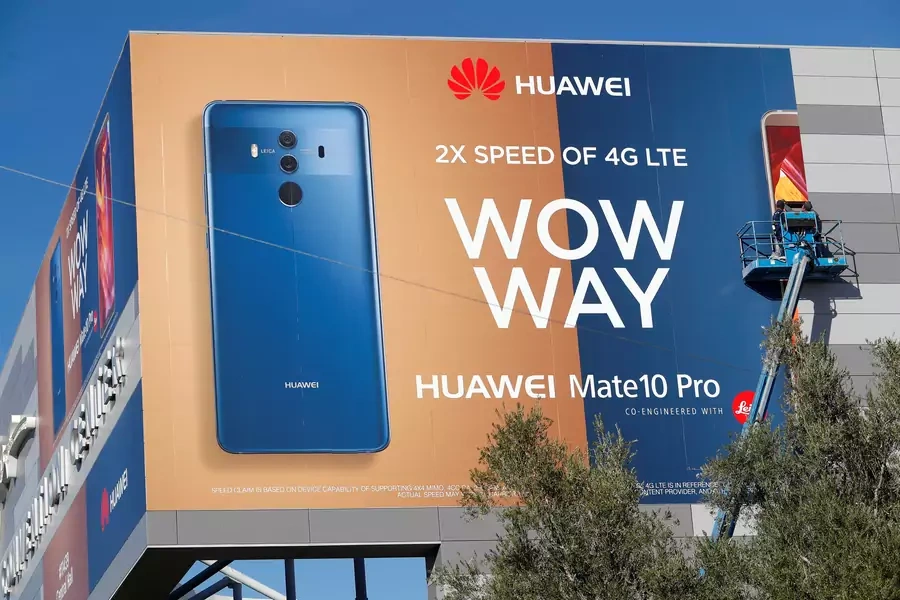Cyber Week in Review: January 12, 2018

Here is a quick round-up of this week’s technology headlines and related stories you may have missed:
1. Better dead than red. U.S-China tensions over tech played out at CES, an annual consumer electronics trade show in Las Vegas, this week. Chinese electronic giant Huawei planned to announce its first major partnership with a U.S. carrier, using AT&T to sell Huawei smartphones to U.S. consumers. Instead, under pressure from U.S. lawmakers, AT&T walked away from the deal just before the partnership was set to be announced, leaving Huawei to lick its wounds and vent about U.S. protectionism. U.S. officials have long had concerns about Huawei's relationship with Beijing, believing that Chinese officials could pressure the company to spy on Beijing's behalf. Since then, the company has struggled to get a foothold in the United States, even as it has succeeded in gobbling up market share elsewhere in the world.
More on:
2. Cutting it real close. The U.S. House of Representatives reauthorized section 702 of the Foreign Intelligence Surveillance Act, the legal justification for a number of U.S. intelligence community programs Edward Snowden revealed in 2013. Section 702 allows the U.S. intelligence community to collect foreign intelligence from U.S. communications service providers, including from or about U.S. individuals, without a warrant. Some members of Congress, civil libertarians, and lawyers argued that the provision was unconstitutional and sought significant changes, including a requirement that authorities obtain a warrant before querying on U.S. individuals. The U.S. intelligence community argues Section 702 is vital to national security and sought a "clean" reauthorization. It largely got its wish despite President Trump tweeting his opposition to Section 702 the morning of the vote, and then later reversing himself. The reauthorization debate now moves to the Senate, where the House-approved bill could face a filibuster. Section 702 expires on January 19.
3. Does this look "clearly illegal" to you? A law that requires social media giants to police hateful and "clearly illegal" content on their platforms entered into force in Germany on January 1. The Netzwerkdurchsetzungsgesetz, or “network enforcement law,” has been the subject of vigorous debate since it was passed in June 2017, with some lauding the effort to punish social media companies for not policing their platforms and others calling the law a huge mess. So far, Twitter suspended a right-wing German lawmaker for referring to “barbaric, Muslim, rapist hordes of men” and blocked a satirical magazine for a parody anti-Muslim comment. Facebook removed a video of a Israeli restaurant owner being verbally assaulted on the street meant to bring attention to anti-semitism on the grounds that the video promoted it. Although some legislators have already called for the law to be repealed, the German government is not expected to revise it for another several months. Despite Germany's growing pains with the law, French President Emmanuel Macron announced his government will introduce a similar measure meant to force tech giants in scrubbing disinformation and fake news from their platforms during elections.
4. The FBI is going to love this! Skype announced that it will incorporate the Signal protocol to its service, bringing more privacy to Skype chats and creating headaches for law enforcement everywhere. Skype's new "private conversations" feature will support end-to-end encryption for chats and calls, and is being rolled out to select Skype users. The move comes at the same time as the FBI Director Christopher Wray called encryption an "urgent public safety issue" and complained about the Bureau's inability to unlock over 7000 encrypted cell phones from October 2016 to September 2017 at a conference. As a result of the Snowden disclosures and to protect their customers from criminals, tech companies have begun rolling out encryption in more devices and services. This has caused problems for law enforcement, which routinely complain that encrypted devices and communications thwart their ability to investigate crimes or execute their lawful authorities.
More on:
 Online Store
Online Store